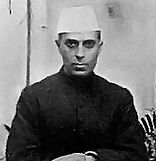1962 Indian general election
| |||||||||||||||||||||||||
All 494 seats in the Lok Sabha 248 seats were needed for a majority | |||||||||||||||||||||||||
|---|---|---|---|---|---|---|---|---|---|---|---|---|---|---|---|---|---|---|---|---|---|---|---|---|---|
| |||||||||||||||||||||||||
| |||||||||||||||||||||||||
India held general elections to the 3rd Lok Sabha. Jawaharlal Nehru had led the Congress to a resounding victory in the 1962 elections with a majority win. During his tenure the Congress leader had also envisaged a new look for the country in the areas of development and growth. Thus came into effect the scheme of Five Year Plan which was aimed at improving the living standards of the people by making judicious use of natural resources. The various sectors in which Nehru wanted the country to leap forward included science and technology, industrial sector, communications. The futuristic PM of India had plans of seeing steel mills and dams as the temples of modern India.
The third Lok Sabha was formed on 2 April 1962. This third general elections, which were conducted for 494 seats in 494 constituencies, represented 18 Indian states and union territories. For the first time, there were only one-seat, constituencies and 91 two-seat constituency were abolished.[1] The multi-seat constituencies were discontinued since the third general elections in 1962.
At the time relations with Pakistan remained chilling. 'Friendly' ties with China also proved to be something of a misnomer with the Border War breaking out in October 1962. The key issue behind the Indo-Sino conflict of 1962 is attributed to the 1956–57 construction of a Chinese military highway in the disputed territory of Aksai China just west of Tibet. The war which began with skirmishes in the summer of 1962 assumed significant proportions in October and November 1962, along three widely separated fronts. A strong and well-prepared Chinese army outshone the Indian army.
Widely criticised for his government's insufficient attention to defence, Nehru was forced to sack the then defence minister Krishna Menon and accept U.S. military aid. Nehru's health began declining steadily, and he was forced to spend months recuperating in Kashmir through 1963. Upon his return from Kashmir in May 1964, Nehru suffered a stroke and later a heart attack and died on May 27, 1964. China's invasion of India's borders in 1962 and the state of affairs vis-a-vis Pakistan had left Nehru quit embittered, say experts.
Veteran Congress leader Gulzarilal Nanda succeeded Nehru at his death for a period of two weeks. He served as the acting Prime Minister until the Congress had elected a new leader, Lal Bahadur Shastri. Shastri was an unlikely choice for PM who, perhaps unexpectedly, led the country to something of a victory over Pakistan in 1965. Shastri and the humbled Pakistani President, Muhammad Ayub Khan, signed a peace treaty at Tashkent in the former Soviet Union on January 10, 1966. However, Shastri could barely live to see the spoils of his win.
Following the vacuum created by Shastri's death, the Congress was once again found itself devoid of a leader. Nanda was back to being the acting Prime Minister, again for a period of less than a month, before being succeeded by Indira Gandhi, Nehru's daughter. Indira had served as Information and Broadcasting Minister in Shastri's cabinet. The then Congress President K Kamraj had a major role to play in elevating Indira to the post of Prime Minsitership in 1966. Despite stiff opposition from veteran Congress leader Morarji Desai, Indira Gandhi became the Prime Minister on January 24, 1966. For the Congress it was not really the best of times. The party was going through internal crisis and the country itself was recovering from two closely fought wars. The economy was hurting, general sentiment was low. Other issues which rocked the Lok Sabha included the Mizo tribal uprisings, famine, labour unrest and misery among the poor in the wake of rupee devaluation. There was also a lot of agitation in the Punjab for linguistic and religious separatism.
Results
Results by Party
| Lok Sabha elections 1962 Electoral participation: 55.42% |
% | Won (total 494) | |
|---|---|---|---|
| Bharatiya Jana Sangh | BJS | 6.44 | 14 |
| Communist Party of India | CPI | 9.94 | 29 |
| Indian National Congress | INC | 44.72 | 361 |
| Praja Socialist Party | PSP | 6.81 | 12 |
| Socialist Party | SSP | 2.69 | 6 |
| Swatantra Party | SP | 7.89 | 18 |
| Akali Dal | AD | 0.72 | 3 |
| Akhil Bharatiya Hindu Mahasabha | ABHM | 0.65 | 1 |
| Akhil Bharatiya Ram Rajya Parishad | RRP | 0.6 | 2 |
| All India Forward Bloc | AIFB | 0.72 | 2 |
| All Party Hill Leaders Conference | APHLC | 0.08 | 1 |
| Chota Nagpur Santhal Parganas Janata Party | CNSPJP | 0.41 | 3 |
| Dravida Munnetra Kazhagam | DMK | 2.01 | 7 |
| Ganatantra Parishad | GP | 0.3 | 4 |
| Indian Union Muslim League | IUML | 0.36 | 2 |
| Peasants and Workers Party of India | PWPI | 0.1 | 0 |
| Republican Party of India | RPI | 2.83 | 10 |
| Haryana Lok Samiti | HLS | 0.1 | 1 |
| Lok Sevak Sangh | LSS | 0.24 | 2 |
| Nutan Maha Gujarat Janata Parishad | NMGJP | 0.17 | 1 |
| Revolutionary Socialist Party | RSP | 0.39 | 2 |
| Independents | - | 11.05 | 20 |
| Nominated Anglo-Indians | - | - | 2 |
See also
References
- ^ "General Election of India 1962, 3rd Lok Sabha" (PDF). Election Commission of India. p. 4. Retrieved 2010-01-13.


